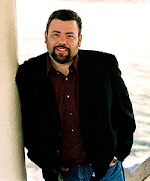
It is April 1st,
time for the FIRST Day Blog Tour! (Join our alliance! Click the button!)
The FIRST day of every month we will feature an author and his/her
latest book's FIRST chapter!
This month's feature is:
and her book:
(NavPress
Publishing, 2006)
 This month's feature is very special. The author is
This month's feature is very special. The author isone of the FIRST Day Blog Alliance Members!!! Click here for her Blogspot! MARY E. DeMUTH has spent the
last fifteen years as a writer. Winner of the 2003 Mount Herman
Christian Writers Conference's Pacesetter's Award, she now splits her time
between writing and planting a new church with her husband, Patrick, and
two other families. Wishing on
Dandelions is the second book in the Maranatha Series. The first was the
critically praised book, Watching the Tree
Limbs. She has also written two parenting books. Building the
Christian Family You Never Had and a new one called Authentic
Parenting in a Postmodern Culture which will release this
summer with Harvest House. Mary, Patrick, and their three children make
their home in Texas.
I still can’t tell my story up close, like it was me in
it,breathing the tangled wisteria on the fence posts of Burl, Texas. There
are times I still can’t bear to say it was me. The book of mylife
continues to open, painful word by painful word, page after page. I get real
close to typing the whole story with the word I in it, but I hit delete
every time, replacing me with she.
Zady tells me I’m ready to write my story honest, but I’m not so sure.
She says she’s there to help me remember my healing,even as she puts an
arm around my shoulder when a tear slips through. “It hurts,” she says.
“Real bad. Lord, I wish it didn’t rip at you so.”
She tells me I survived that story — that I should be proud — yet her
presence brings back its horrid validity written on the backdrop of her
tender love. Reminds me in a kind, wild way that this is my
story even if I can’t seem to admit it on the page.
***
Summer 1983
Burl, Texas
Uncle Zane appeared disheveled when Maranatha pestered
him. His silvery hair, normally combed and parted in the exact
same place, was instead bunched and unkempt, his part like a
winding Burl road.
“Camilla and me, well, we want to go to the fair. Can you drive us?
Please?” Maranatha practically danced, shifting her weight from one foot
to the other.
“No,” he shouted, an odd outburst for such a quiet man.
Gangly and with a sinewy will of her own, she pled, “C’mon,Uncle Zane.
Everyone will be there. Besides, Camilla promised we’d shoot the fair —
ride every single ride from the merry-goround to the Zipper. This year
I promised her I’d do it without getting sick.”
“I said no.”
Three plain words. Maranatha almost turned away in a thirteen-year-old
huff, but she lingered long enough to see him sit down in a parlor
chair, then bend forward, pressing palms to temple.
“We’ll ride our bikes,” she told him. The room echoed her words. “I’ll
be back later.” Her words stung even as she said
them, particularly because Uncle Zane, usually a man without
reaction, looked up at her with a strange sort of look in his blue
eyes. A look that pleaded, Please stay.
She left him there. And didn’t look back.
Camilla and Maranatha raced down the road toward the embrace of the
fair, miles away. “You’re going to barf on me, I know it,” Camilla teased.
“I will not. My stomach’s better.”
“Oh, right. Now that you’re a teenager, you’re not nauseous? If I were
you, I’d be cautious. I don’t trust your stomach. Neither should you.”
They raced, tire to tire, until Camilla saw a wrought-iron gate and,
behind it, a burnt skeleton of a house. “I smell mystery,” she said. She
stopped her bike. Maranatha nearly crashed into her.
In lieu of a ride on the Tilt-a-Whirl, and despite Uncle Zane’s pained
blue eyes, Maranatha and Camilla climbed over the gate. They searched
the scorched scene, pretending to be arson investigators.
They concluded a cat had set fire to the house, taking feline revenge
on an evil master. “All scary houses have names. This one’s Black, sure
as night,” Camilla said.
As the day’s shadows lengthened, after they’d explored the woods behind
the house whose once-grand pillars stood charred against the Texas sky,
Camilla said, “I want to come back here another day.” She put her hands
on her hips and tilted her head back. “Let’s go back to Black.” She
wailed and screamed the words like AC/DC. Maranatha laughed so hard, she
nearly wet her pants.
Maranatha and Camilla never made it to the fair.
Tired from their investigating, they pedaled lazily back to town. “I’ll
see you soon, baboon.” Camilla waved a good-bye to
Maranatha.
Something niggled at Maranatha as she walked the stairs of the big
white house. Everything looked the same, but nothing felt that way.
“I’m home, Uncle Zane.” Her voice echoed, bouncing off tall ceilings.
She called Zady’s name, though she knew it was unlikely the housekeeper
would be there on a weekend. She shivered. Loneliness pierced her.
She walked past the parlor to look out the kitchen window at Uncle
Zane’s parking spot, figuring he’d probably left to look for her — again.
He had swung on a wild pendulum from disinterest to overprotection the
day her name changed from Mara to Maranatha three years ago, but his
protection kicked into high gear when she turned thirteen. On her
birthday, he gave her a bike that sported a crudely shaped bow. He handed her a
hockey helmet. “Be careful,” he said. And he meant it.
She stopped in front of the window. Uncle Zane’s white Cadillac sat
silent in the driveway, the same place it’d been when she’d ridden away
earlier.
Panic ripped through her.
Maranatha ran to the parlor. On the floor, Uncle Zane lay prostrate,
face kissing the oriental rug, arms and legs outstretched like he was
making a prone snow angel.
“Wake up,” she wailed.
But he didn’t. An ambulance came and whisked him away, while the word
stroke hung in the hot Burl evening.
***
Zady’d tried to soothe Maranatha during his long rehabilitation. “It’s
not your fault, Natha,” she said. “I should’ve checked on him. He
seemed altered, and I should’ve known.”
Though Zady wore guilt in the lengthening lines around her eyes, she
pestered Maranatha with all sorts of don’t-blameyourself words,
meaningless blather that never made it past Maranatha’s terrible heart. The best
way Maranatha could explain it to Camilla was that she and Zady stood
before a giant chalkboard, with the words should have and could have
scrawled over and over again like naughty kids’ sentences. While Zady
tried to erase Maranatha’s coulds and shoulds, Maranatha rewrote them line
by line.
O n e
Summer 1987
Burl, Texas
Every year on the anniversary of his stroke, and many times in
between, Maranatha retraced the route she and Camilla had ridden that day.
In front of her bike tire beckoned a serpentine of gray pavement
radiating heat. The more her shirt clung to her body in a sticky embrace, the
better she liked it.
Penance.
She’d learned the word from Bishop Renny. He said something about
trying to make things right by abusing yourself. Said Jesus took the need
for all that away. But she knew Jesus would say something different to
her, considering how she’d nearly killed Uncle Zane because of her
selfishness.
The hot Burl breeze tangled Maranatha’s hair so that it whipped and
wrangled about her face. She didn’t mind, didn’t even brush a casual hand
to her face to clear the hair from her eyes. At seventeen, she welcomed
the wildness, wearing her tangles like a needed mask. A gust of
sideways wind whipped the mask from her face.
Maranatha passed the costume shop where, behind a cracked front window,
one headless mannequin sported a faded Santa suit and another, a
sequined Twenties dress. She pedaled past the farm implement shop whose yard
was dotted with ancient rusty plows. This strip of road held most of
Burl’s broken dreams — a turn-of-the-century white farmhouse, now
converted into a bed and breakfast that no one visited, a handpainted For Sale
sign declaring the dream dead. A mobile home stood way back on a fine
piece of property, the structure tilted oddly to the left where the
cement blocks had deteriorated. A goat preened on its roof, claiming it for
himself. Four years ago, children had played out front. She and Camilla
had even waved to them. So carefree for such a day.
Wiping the sweat off her forehead with the back of her hand, she
glanced down at the too-small bike, despising it, as if it had once held her
hostage, carrying her away from Uncle Zane’s need four years ago when
she and Camilla had been drawn toward the lure of cotton candy and
caramel apples.
Maranatha veered onto the familiar gravel driveway flanked by crepe
myrtles. She stopped, straddling her bike, catching her breath. She
listened for cars but heard only the labored noise of a tractor, far away,
until the engine sputtered and died.
The silence roared at her.
It should have blessed her with peace; instead, she remembered Uncle
Zane’s hair askew and wondered why God let a selfish girl like her take
up space in this world.
She looked behind her. Her thoughts shifted as a deeper worry played at
her, taunting her. Though she never voiced it, she lived with a
constant fear that someone would burst from the silence and grab her. She
hated that she always looked behind, like she was expecting some crouching
phantom to nab her. She’d been running from monsters bent on destroying
her ever since General first drawled, “Hey, Beautiful” in her ear. Even
though she was sheltered in Uncle Zane’s white house and safety was no
longer elusive, she always felt the presence of evil five steps behind
her. Ready to suffocate her.
She glanced at her wrist to soothe her fears. Circling it was her name,
maranatha, each sterling letter separated by a bead. Zady’d given it to
her a year after she found out that her real name wasn’t Mara but
Maranatha. Part of her quest in discovering her identity was a need for a
name that meant more than “bitter.” When she learned that her real name
meant “Come, Lord Jesus,” a part of her heart enlivened, as if it knew
she was named that all along. She touched each letter, thanking God that
He added Natha to the end of her name, that He changed her from bitter
to a heart where Jesus could live. If He wanted to, that is.
She got off her bike. The same wrought-iron gate stood erect before
her, chalkboard black and foreboding, with an out-of-place silhouette of a
squirrel at its arched top. It always reminded her of Willy Wonka’s
gate, the gate that prohibited children from seeing the mysteries within
the glorious Chocolate Factory. She laid her bike in its familiar dusty
place behind the crepe myrtles
and approached the gate. Locked.
As usual.
Heart thumping, she tried the handle, a ritual she performed every time
she ventured to this place, the scene of her selfishness. Why she
thought it would magically open today, she didn’t know. When she tugged at
it, the gate creaked a warning, but it didn’t budge. Looking back toward
the road, she listened again. Nothing. Only the sound of a dove calling
to its lover and the crackle of too-dry grass rubbing against itself
like a fiddle against its bow. She breathed in the hot air and touched
the angry wrought iron. She returned to the bike, unzipped the pouch
behind her seat, and stretched on her bike gloves. Attacking the gate
again, she pulled herself up, up, up until she could swing her leg over the
gate’s pointed top. She scampered down, preferring to jump the last
three feet.
Maranatha smiled. Before her was an open field whose hair was littered
with dandelions past their prime. Bits of dandelion white floated in
front of her like an idle snowfall, only these flurries drifted toward
the sun, away from the ground, in lazy worship. Beyond the field stood
the remains of the charred mansion.
Now shaded by the house’s pillars, she remembered Uncle Zane’s eyes the
day of his stroke. The smile left her face.
She ran to the middle of the field, trying to shake the memory — her
laughing, laughing, laughing while Uncle Zane pled for her. She stopped.
Maranatha picked one dandelion, held it to her mouth, and blew a warm
breeze over its head, scattering wishes toward the has-been mansion.
Jesus, You know my name. I want to live up to it. I want my heart to
be a place where You want to come. But I’m afraid it’s too dark there.
What I’ve done. What’s been done to me. . . . I’m sorry I’m so needy,
but I have to know, have to know it in my gut. Please show me You love me
anyway. Whatever it takes.
It had been her wish since she met Jesus under the pecan tree at her
home, back in the days when Uncle Zane had a quiet will and Zady, his
housekeeper and her friend, kept house without the intrusions of
Georgeanne, who had invaded their peaceful home with her schemes. Zady dished
out helpings and helpings of His love every day at Uncle Zane’s table,
but Maranatha never seemed to be able to digest even a scrap. She
experienced Jesus at church, surrounded by Mama Frankie and faces darker than
her own. When dark-skinned Denim spoke or his pale-faced stepdaughter
Camilla rhymed truth, Maranatha thanked God for making unique folks, for
giving her friends. Still, Jesus’ love seemed far away, and she,
undeserving.
A portion of her little girl’s heart had been abducted by General, the
boy-turned-man who violated her so many years ago. His pocked face
visited her in nightmares where she had no voice, no safety, no escape. He
seemed to lurk behind every stray noise. He didn’t haunt Burl anymore,
but he lived firmly in her mind, igniting dread. She feared he’d stolen
the only part of her that could have understood God’s love. She feared
he held the middle piece to the puzzle of her life.
Am I wishing for something I’ll never have?
Maranatha shielded her eyes from the pursuing sun and walked toward the
burnt house. Four once-white pillars stood tall, blackened by angry
flames. She remembered when she’d first seen Uncle Zane’s home nearly a
decade ago, how it loomed large on its street, how she’d longed to be the
owner there someday. But reality was more complicated than that. Sure,
she lived there now. Little by little, she was renovating it to
splendor, but lately the joy of transforming it had waned thin, like a pilled
swimsuit at summer’s end. Fixing things was hard. She’d painted and
painted until her fingernails were permanently speckled. Then the pier and
beam foundation settled further, cracking her handiwork.
As she gazed upward at the four pillars that reached for the sky, where
the abandoned house’s roof once lived, she wondered if she’d ever have
a home of her own, children about her legs, a husband to love her. The
thought of marriage both repulsed her and pulsed through her. Hatred
and longing — all in one girl.
She walked through the rubbish, darkening her red-dirted shoes, looking
for a sign from heaven. She played this game sometimes, asking God for
signs, for sacred objects that showed her that He saw her, that He knew
she existed. That He cared.
Something glinted off and on as the sun played hide-and-seek through
the trees. She bent low to the ashes, her body blocking the sun. The
glinting stopped, so she stood and let the sun have its way again. There,
spotlighted beneath the gaze of the pillars, was a simple, thick-banded
gold ring. She retrieved it, dusted the ashes from the gold, and
examined it, turning it over and over in her hand.
Inside the ring was a faint engraving. Forever my love.
“Thank You,” she whispered, but her words melted in a hot wind. Dark
clouds obscured the sun. The sky purpled. She’d seen a sky like that
before. She slipped the ring into her shirt pocket and ran toward her bike,
climbed the hot gate like a criminal pursued, and dropped on the other
side.
She mounted her bike. From behind she heard a bustled scurrying, like
the furious bending of too-dry alfalfa.
Then darkness.
Someone’s hands suffocated her eyes, obscuring the day, stealing her
screaming breath. She kicked her leg over the tenspeed, struggling to
free herself from the firm grip, and tried to holler. Like in her
nightmares, she was mute from terror. Though she knew General’s presence was
illogical — he’d been shipped off to some sort of juvenile-offender boot
camp — she could almost smell his breath as she gasped for her own. She
heard a laugh but couldn’t place it. It sounded familiar, like family.
She kicked and elbowed like a kindergarten boy proving his manhood
against a playground bully, but the hands stayed enlaced around her eyes.
More laughter. Even more familiar.
She took a deep breath and screamed. Real loud.
Thunder answered back.
Copyright © 2006 NavPress Publishing. All rights reserved. To order copies of
this resource, come back to http://www.navpress.com/.
Mary E. DeMuth's website: http://www.relevantprose.com/
Mary E. DeMuth's Blogs: http://www.relevantblog.blogspot.com/ and http://www.pioneerparenting.blogspot.com/

























